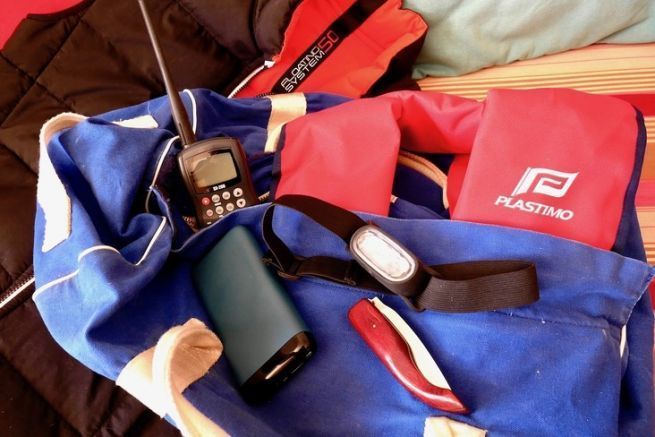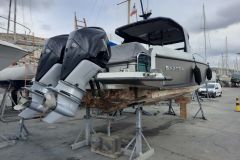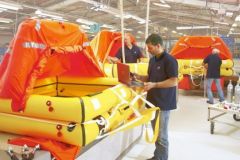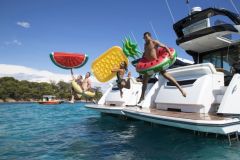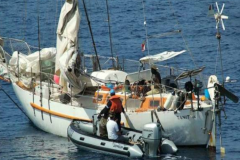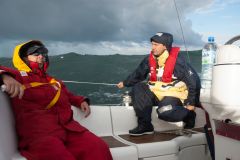Whether you are invited to sail on a friendly boat or board a charter boat, it is always prudent to have your own individual equipment, which you know will be ready for any eventuality. Carrying safety equipment, a properly configured smartphone and recharging tools, is a necessary precaution that offers additional safety and peace of mind.
Knife or multi-function pliers?
The quarrel between Opinel and Leathermann is far from over. The first one slices as well a spoon as a sausage. The second one allows for all kinds of repairs, but it is clumsy when it comes to spreading. Rather than choosing, why not carry both? A good knife in the pocket and a multi-tool in the bag in case of unexpected DIY. That's what you need to be prepared for any eventuality.
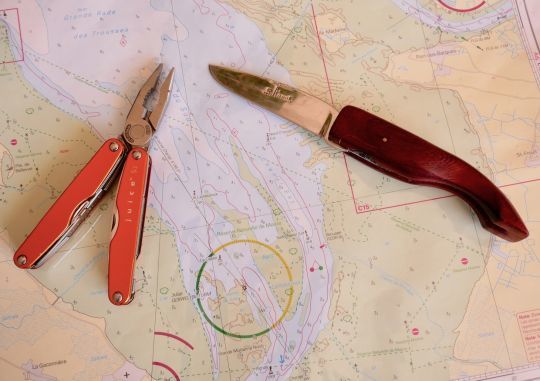
A plotter in your pocket
The smartphone can be an invaluable tool in the event of a system failure on board. Chartplotter with GPS positioning, marine weather, tide schedules and water level data, it can do all this, but it is better if it has been configured beforehand. The easiest way is to create a home screen dedicated to navigation, with the few useful applications whose limits you will have learned before embarking.
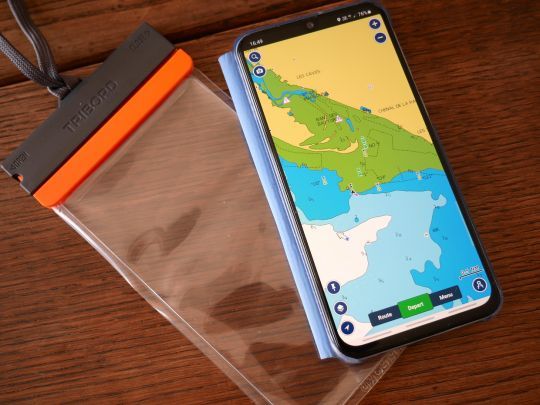
Just in case!
Even if the VHF is normally attached to a boat, don't hesitate to slip yours into your bag. It can be invaluable in case the one on board refuses to work, or if the boat's batteries fail.
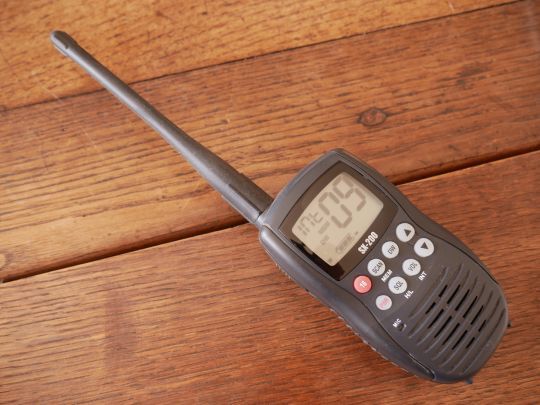
A reserve of energy
It is never useless to carry with you a mobile battery, capable of charging any device in USB. It's an inexpensive solution, and allows a good autonomy with tablets, smartphones, cameras and even electronic cigarettes. Of course, we will not fail to take the necessary cables and USB adapters to connect to the cigarette lighter or the sector.
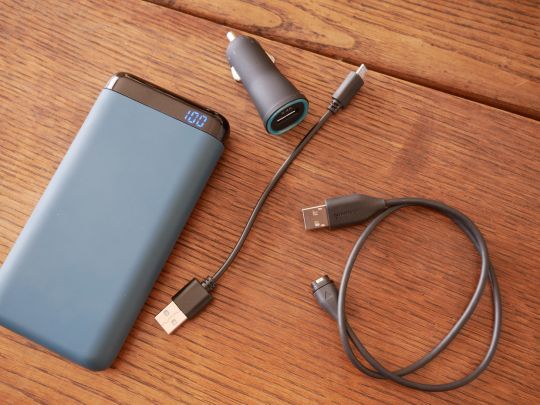
Headlamp
The headlamp is a must-have when sailing at night. It leaves your hands free to maneuver. It is a light and compact accessory, which you will always be happy to have with you. As with any individual equipment, you should make sure that it is charged and, above all, you should familiarize yourself with its operation to avoid dazzling the other crew members with untimely flashes of light.
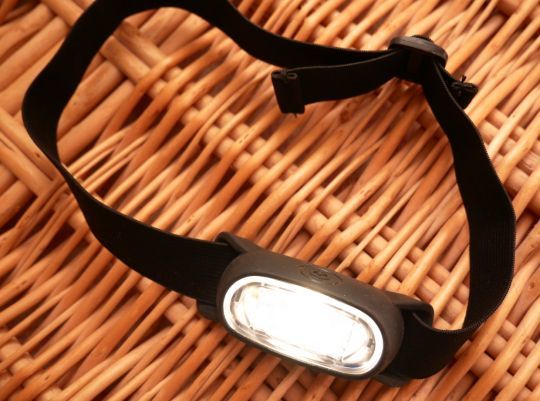
Float without thinking about it
In addition to the essential sea clothes, it is always interesting to bring your own inflatable vest. In addition, sleeveless vests such as Decathlon's Izeber vests are very comfortable to wear as windbreakers, and provide 50N of buoyancy. Of course, except for river navigation, it does not replace a life jacket, but it is a means of buoyancy that you can wear without thinking about it, even in good weather.
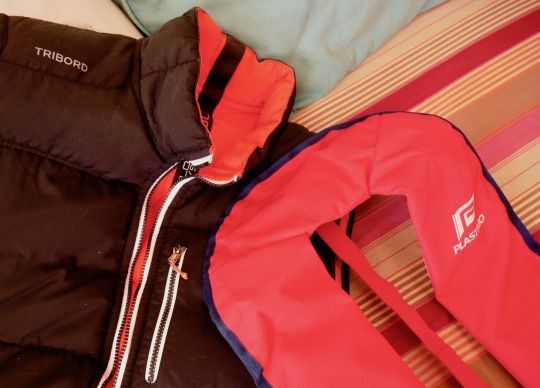
The time can last
The sea is not a place of certainty: the wind can fall, the engine can fail, you can be caught by the overturn or even miss the tide. A day's outing can go on for a night. It will only be an incident if you have thought about it before. Even for a short trip, you don't embark without water, warm clothes, or a few days of your medical treatment.

Planning ahead and being self-sufficient are an integral part of being a sailor. It's up to you to define what should be in your duffel bag according to your navigations.
